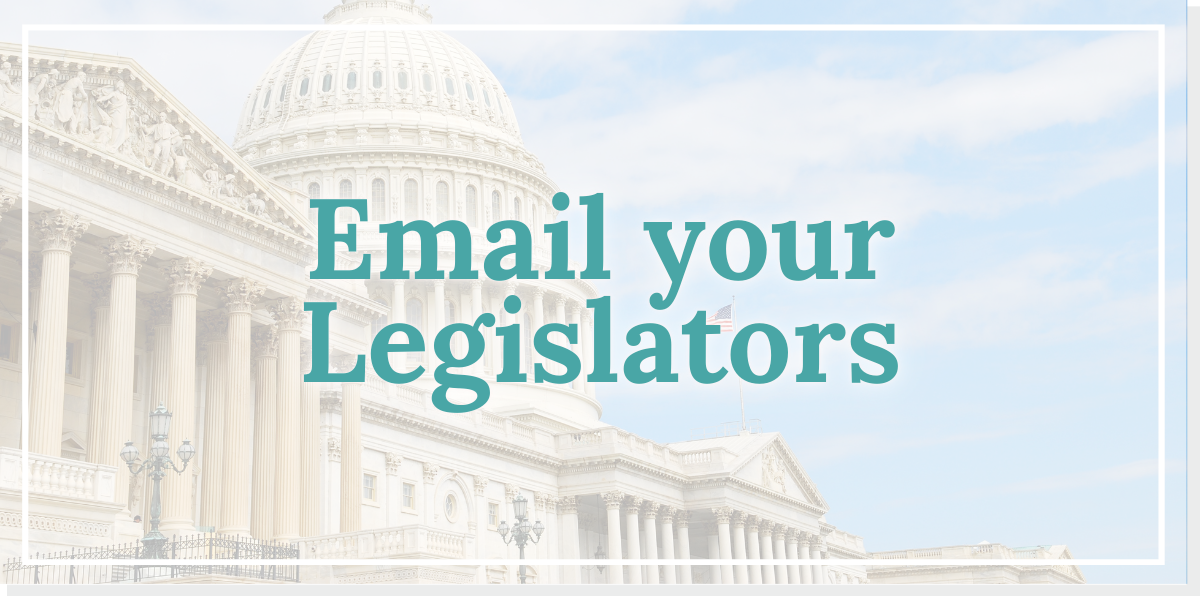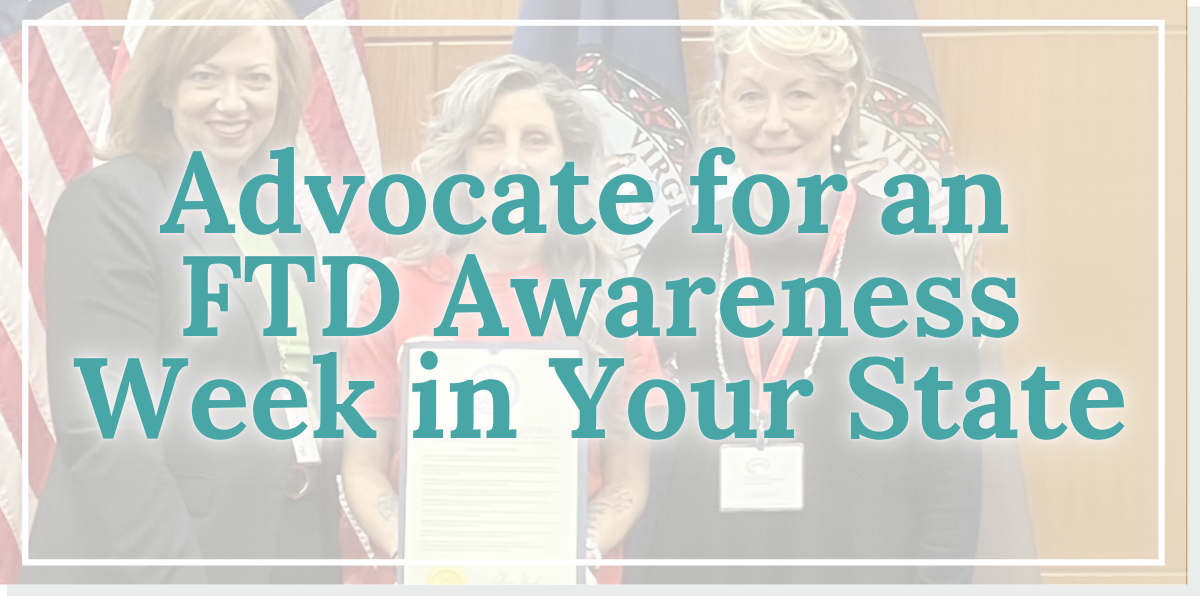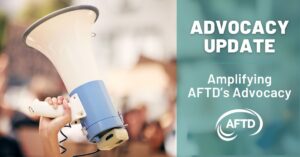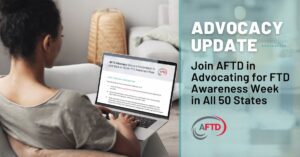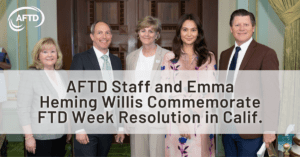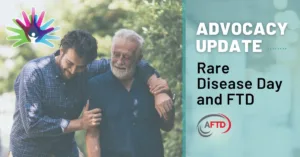Advocacia AFTD
Changing the Future for People with FTD
Advocacy is vital to ensure that the voices of people living with frontotemporal degeneration (FTD) and their families are heard by decision-makers. By sharing personal stories and priorities, advocates help shape policies that lead to earlier diagnosis, better care, and more research funding. Without strong advocacy, FTD may remain under-recognized and underfunded compared to other conditions. Together, we can advance policies that improve quality of life and accelerate scientific breakthroughs.
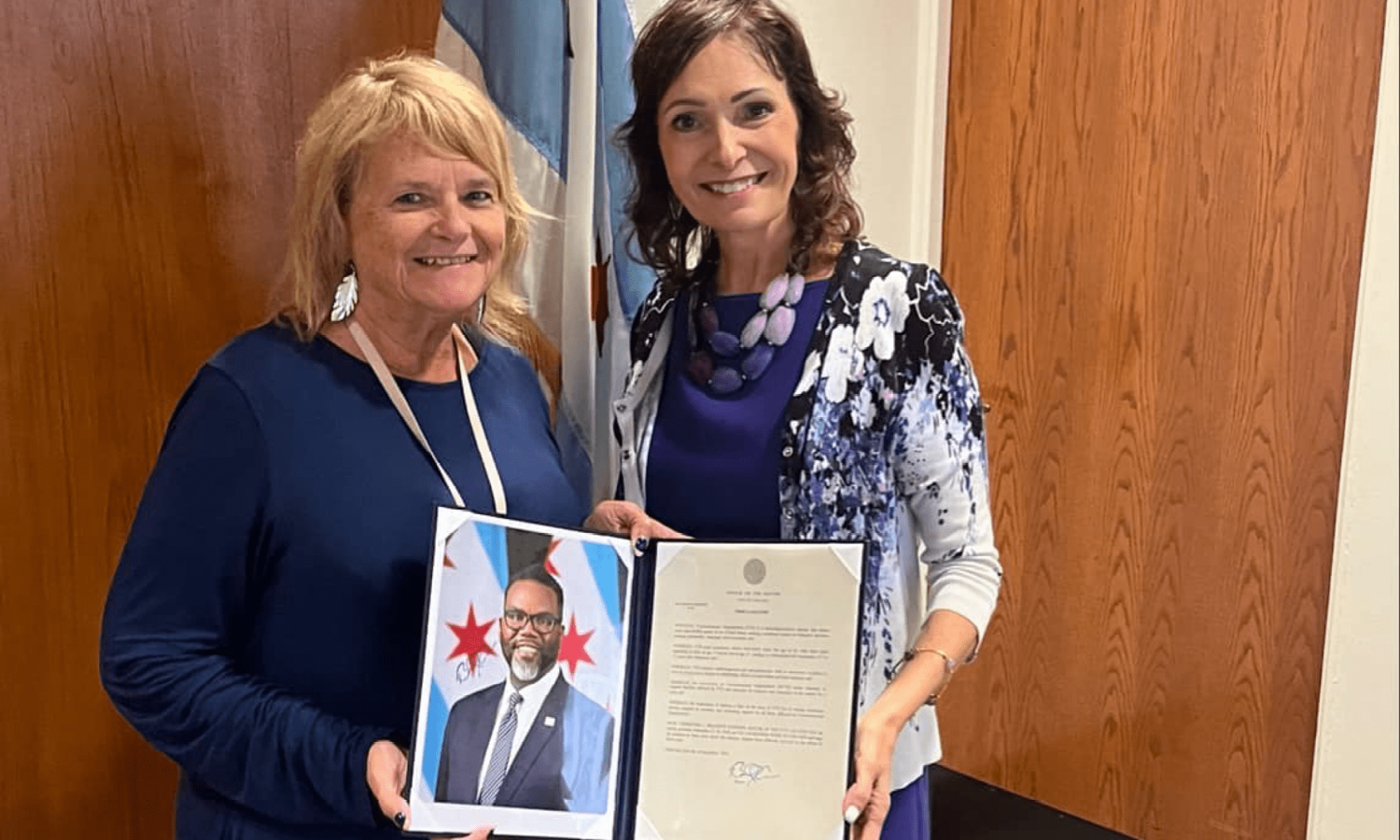

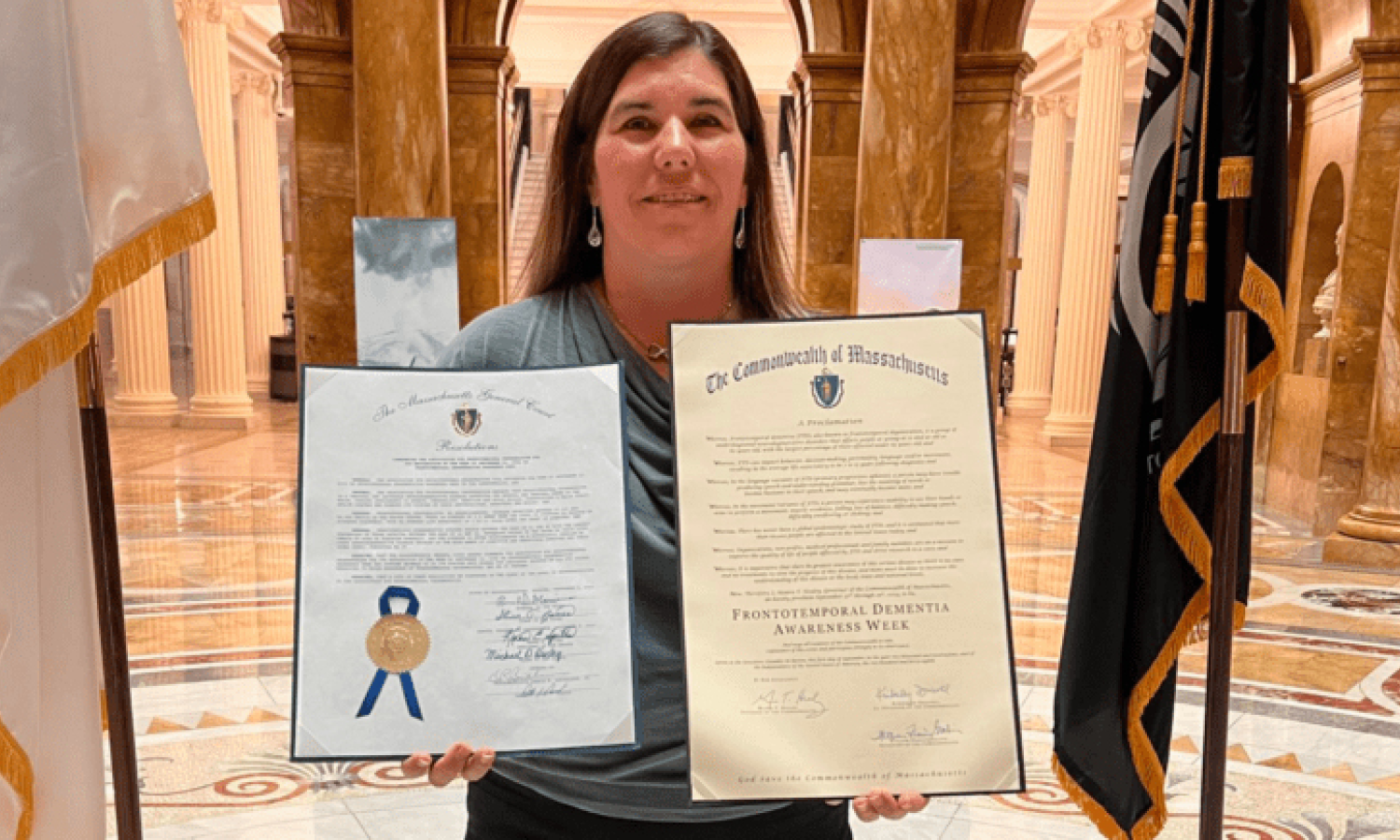
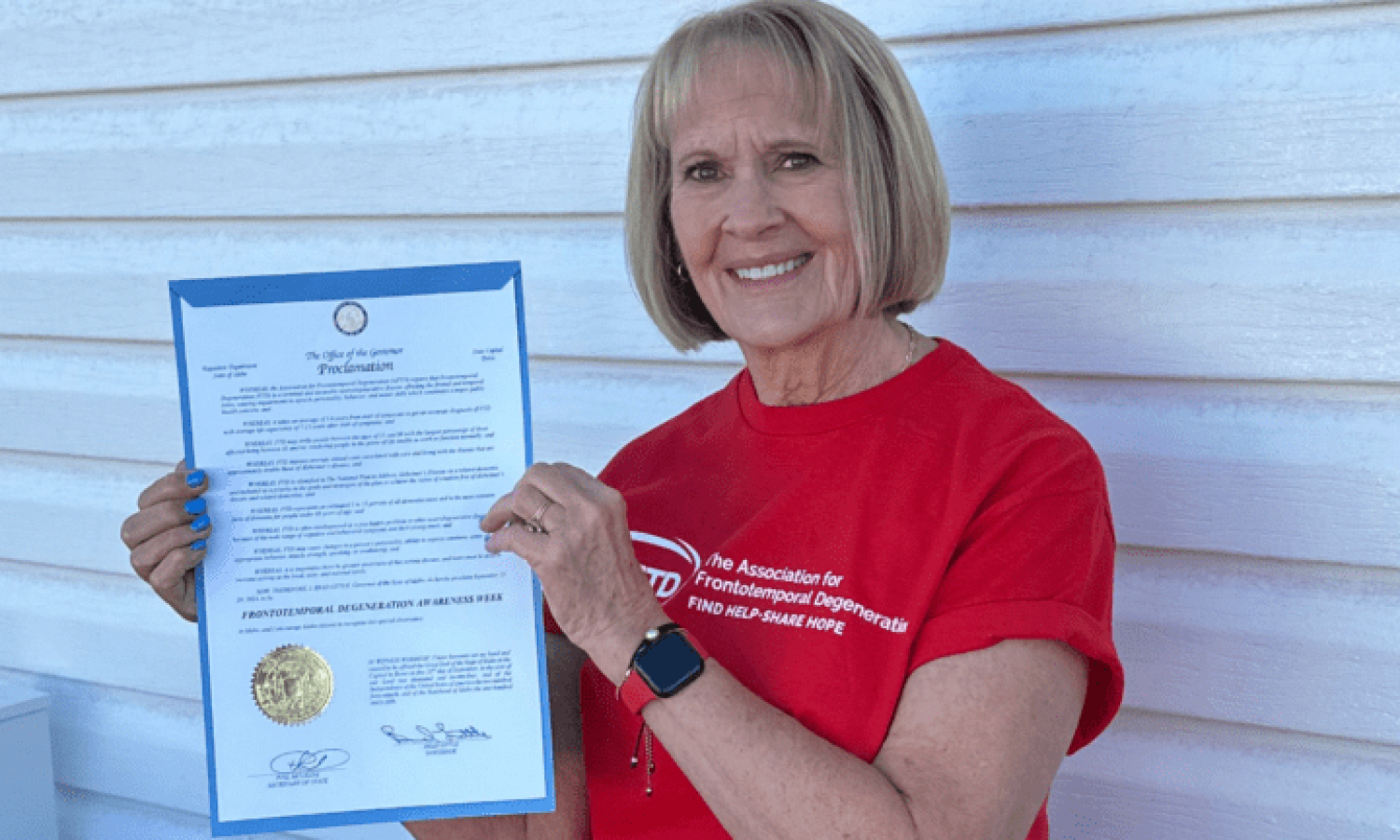
How Public Policy Impacts People with FTD
The U.S. Congress plays a key role in determining federal funding for biomedical research on FTD by appropriating funds to agencies like the National Institutes of Health (NIH). Legislators also pass laws that affect access to health care, disability benefits, caregiving support, and insurance coverage for people with FTD. There are many opportunities to shape legislators’ awareness of an issue and influence the policymaking process, such as educating a member’s office on an issue, informing the discussion during congressional hearings, and urging your elected officials to vote a particular way during a committee markup or floor consideration of a piece of legislation. By engaging with members of Congress, we help ensure that FTD is a priority on Capitol Hill.
The executive branch implements and enforces the laws passed by Congress, directly impacting how policies affect people with FTD and their loved ones. Federal agencies such as the NIH, the Centers for Medicare & Medicaid Services (CMS), and the Administration for Community Living (ACL) develop programs and administer grants that fund research, care, and services. Engaging with federal officials within the executive branch helps make sure that FTD remains visible in national health strategies and programs.
State and local governments make decisions that have a significant impact on daily life for people living with FTD. States administer Medicaid, operate aging and disability programs, and fund caregiver support and respite services. Local agencies help provide community-based resources, transportation, and housing that can help people with FTD remain safe and supported. Advocating at the state and local level ensures that policies and services are inclusive of the unique needs of the FTD community.
Comentários da AFTD sobre política
3 de março de 2025: Declaração da Associação para Degeneração Frontotemporal (AFTD) sobre a interrupção do financiamento e das atividades de pesquisa científica
21 de março de 2025: Declaração da Associação para Degeneração Frontotemporal sobre a necessidade de financiamento robusto e consistente para pesquisa médica
29 de abril de 2025: Declaração da Associação para Degeneração Frontotemporal (AFTD) se opõe aos cortes no Medicaid
29 de agosto de 2025: Comentários do Departamento de Trabalho da AFTD
Senador de Nova York Hinchey reapresenta projeto de lei para criar registro estadual de FTD

